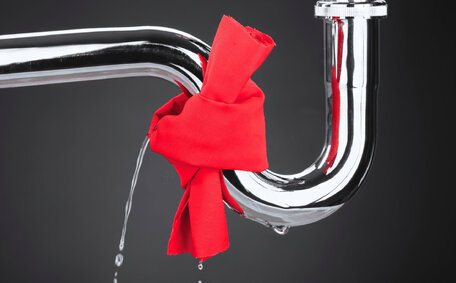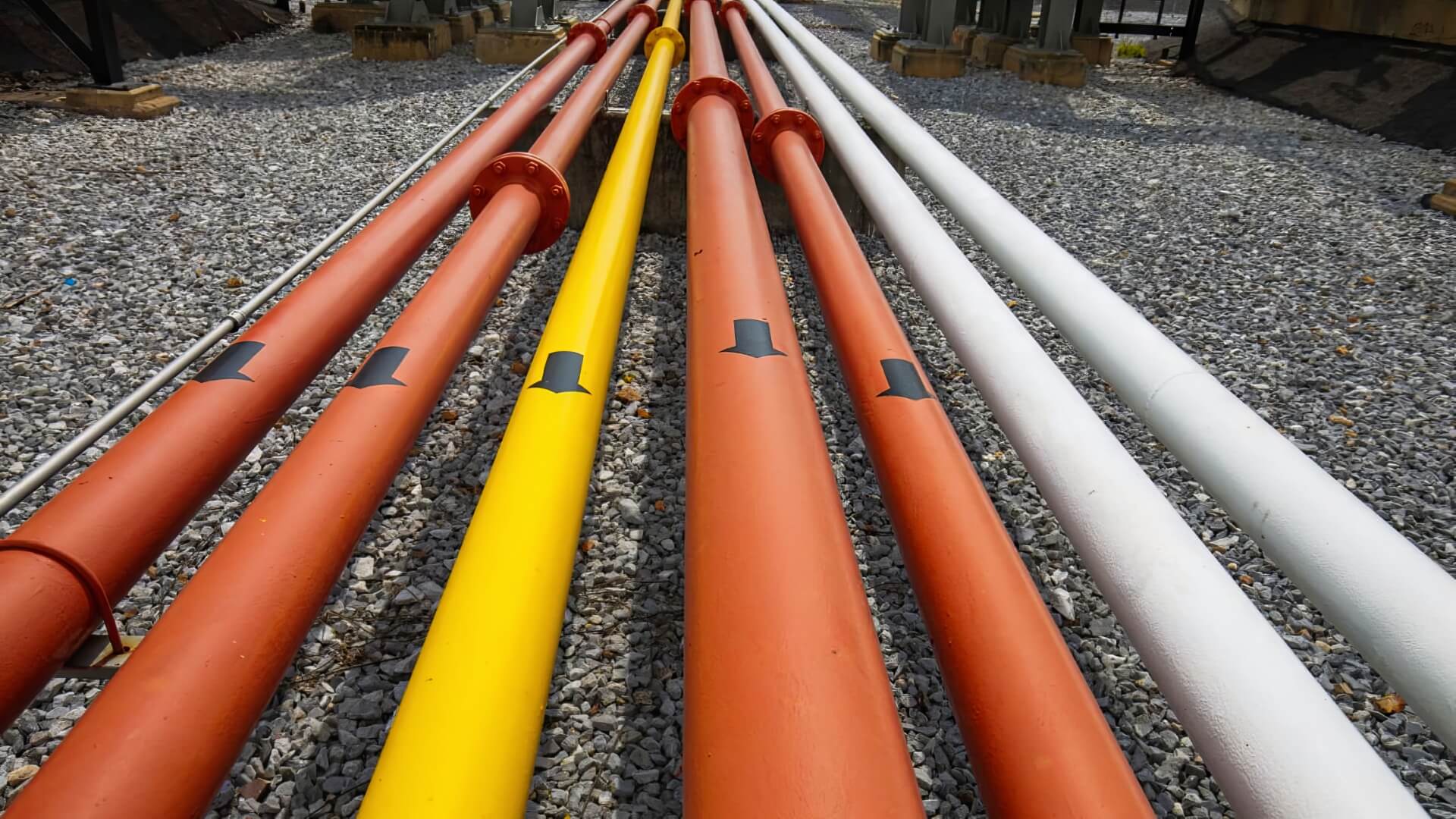Introduction to Fat, Oils, and Grease (FOG) in Drains
Blocked kitchen drains commonly occur from cooking activities that leave fats and oils to accumulate in the pipes. These substances solidify upon cooling, obstructing water flow and eventually causing clogs.
The main culprit? Fat grease - collectively known as FOG.
At Wetherill Park Plumbing, we specialise in efficiently resolving clogged sink issues. Our experienced technicians effectively remove FOG blockages, ensuring smooth water flow and offering practical advice to prevent future issues.
In this article, we’ll go over how can homeowners be aware of how FOG affects their kitchen sinks and leads to drain blockages. We’ll talk about how FOG gets into drains, the damage it causes, prevention methods, and steps you can take to clear clogged drains.
Common Sources of FOG in Kitchen Drains
There are many everyday kitchen activities that contribute to FOG buildup in drains. Some of the most common sources of grease fat down include:
- Used cooking oil, including varieties like vegetable, canola, olive, and coconut, is frequently utilised for sautéing, frying, baking, etc. As they go down drain, these oils congeal and stick to pipe walls.
- Instead of washing butter and margarine down the sink after baking or cooking, pour excess grease and fat into a container.
- Meat fats and drippings - Bacon grease, fatty ground beef, chicken skin and other meat fats add to drain FOG when washed off cookware.
- Dairy products including fatty acids like those found in sour cream, cheese, cream and milk can solidify into sticky deposits inside drains.
- Food scraps - Your food bits, such as crumbs and peels, can contribute to FOG clinging to inner surfaces as they make their way into drain pipes.
- Greasy pans dishes often end up being major contributors, coated in oily food remnants, as they are washed.
- Fat trap catchers, commonly known as grease traps, if not properly maintained, allow some oils to enter the plumbing.
Pouring oil down kitchen drains, including fats or drippings, is frankly the biggest mistake. In many homes in areas like Wetherill Park, Sydney, the build up of substances like oils fats can inadvertently find its way down sink drains. But fostering practices that prevent grease down drain is essential for averting catastrophic blockages in your home.
How FOG Clogs and Damages Drain Pipes
Hot oils and greases from cooking cool and solidify in your plumbing, sticking to pipe walls and forming blockages akin to foreign materials in toilets.
Layers of oils and fats can build up over time, beginning to coat the interior of kitchen plumbing systems. FOG, one of the most significant causes blocked drains encounter, wreaks havoc on kitchen drain pipes as they cool down through a simple yet destructive process.
Hardened combinations of fats, oils, and grease create a sticky surface which causes blocked passages, ensnaring food bits and other debris and signalling future blockages. Gradually, the accumulation of FOG and debris restricts water flow through the pipes. Inevitably, the drain can become so heavily laden with deposits that a clog arises, leading to water backing up in sinks and potential flooding.
According to Sydney Water, FOG is implicated in up to 80% of residential sewage blockages. The discovery of massive 'fatbergs’ like the 143-tonne mass in London’s sewers in 2017 highlights the importance of vigilant drain care.
As FOG accumulates, the drain pipe integrity is compromised as well. Corrosion from curdled fats eats away at pipes from the inside.
The blockages from soap scum and FOG put excessive strain on the plumbing, often leading to a burst pipe, and causing pipes to crack or leak. Tree roots, detecting moisture, seek out your pipes, insidiously finding their way into areas already weakened by FOG buildup.
Ignoring FOG-related issues can incur substantial repair costs. Wetherill Park Plumbing efficiently clears such blockages, and our preventive maintenance can save significant expenses over time.
Preventing FOG Buildup in Your Kitchen
Follow these tips to ensure your drains remain clog-free:
- To handle excess grease, wipe cookware with paper towels before washing to avoid pouring fats down the sink. Make sure to avoid letting food debris and fat down your sink drain.
- Dispose of the grease you pour by placing it into a resealable container, along with other cooled fats, to be tossed into trash instead of risking the clogging of your drains.
- When rinsing dishes, send plenty of cold water down drain to ensure that hot water systems don’t liquefy and then solidify grease in your plumbing.
- Use drain strainers to catch particles like coffee grounds and then throw them out, preventing them from slipping into the pipes; routinely empty strainers into the trash.
- For commercial kitchens, regularly emptying grease traps ensures grease doesn’t reach the main sewage system, safeguarding the drain opening.
- Periodically flush the drain with boiling water to dissolve small FOG deposits and prevent blockages.
- Employ a chemical drain cleaner monthly to dissolve grease and maintain pipes unobstructed by debris.
Through mindful practices, you can prevent drains from FOG damage. If clogs occur, contact Wetherill Park Plumbing for expert assistance in restoring drainage.
Using Home Remedies to Clear Minor FOG Clogs
For minor yet persistent FOG clogs, consider these home solutions to alleviate the issue before seeking professional plumbing help:
- Boiling water - Pour a kettle of boiling water down the drain slowly to dissolve blockages. The hot water can help melt and break up small FOG deposits that have the drain blocked fat. Repeat a few times for the best results.
- Combine half a cup of baking soda with equal parts white vinegar and pour the effervescent solution down the drain to dislodge clogs. The chemical reaction can help dissolve and prevent the urge to pour oil down the drain. Let it sit for 10-15 minutes before rinsing with hot water.
- Mechanical cleaning - Use a drain snake or hook to manually remove hair food particles, and debris trapped in grease. Take care not to scratch pipes.
- Enzyme drain cleaner - Enzyme-based drain cleaners break down organic matter like FOG. Simply pour or gel formulations are available. Follow product instructions.
Natural dish soap mixed with hot water can also dissolve oil, aiding minor clogs. For serious blockages, professional cleaning with high-pressure jets is the most effective remedy.
At Wetherill Park Plumbing, equipped with advanced water systems technology, we clear even the toughest grease fat oil clogs quickly and efficiently. If home remedies fail, please contact us before the issues worsen and potentially cause pipes to burst.
For minor yet persistent FOG clogs, consider these home s
When FOG clogs become severe, it’s time to call in a professional plumber. Here at Wetherill Park Plumbing, we have the advanced tools and proven techniques to tackle even the toughest blockages in a clogged kitchen quickly and efficiently.
We employ high-pressure water jetting, with up to 5000 PSI, to remove years of grease buildup from the pipes, effectively eradicating FOG deposits and identifying root intrusions or pipe damage.
For smaller pipes in bathrooms and kitchens, we use specialty augers and plumbing snakes to clear clogs and employ commercial-grade enzymes to break down grease, ensuring customer satisfaction and restored drainage.
With extensive experience, our professional team efficiently handles severe clogs, maintaining your plumbing’s optimal condition. For any slow drains, contact us at 1300 349 338 or jobs@wetherillparkplumbingservices.com.au before sewage problems occur.
Our experts serve the Wetherill Park area 24/7.
We also offer maintenance plans to keep drains free of FOG through regular cleaning. An ounce of prevention is truly worth a pound of cure when it comes to drain clogs.
Environmental Impact of FOG in Sewer Systems
Though problematic at home, FOG’s impact on sewers and waterways is far more drastic.
When FOG washes down drains and accumulates in sewer pipes, it constricts the flow in the municipal sewer system. As sewer lines become blocked, sewage backups occur and can overflow into streets, homes, businesses and natural environments.
Sydney Water reports that annual FOG from homes and food services cause avoidable sewage overflows in around 15,000 properties. These overflows result in significant repair costs.
Overflowing sewage also poses major risks to human and environmental health. Contaminated wastewater can spread disease, pollute drinking water sources and damage aquatic ecosystems. Studies show grease is toxic to fish and microorganisms.
It is essential to prevent FOG from entering sewers to minimise impact. Responsibility lies with both Wetherill Park homeowners and businesses to diligently maintain grease traps. Government authorities also have a role in enforcing proper FOG disposal regulations.
At Wetherill Park Plumbing, we help customers prevent FOG issues through regular maintenance. We also safely remove large quantities of FOG when clearing clogged drains, avoiding transfer further into the sewers. Doing our part for the environment begins right in your kitchen sink.
Community Efforts to Reduce FOG
Community actions are essential in complementing household efforts to reduce FOG in our sewers. Wetherill Park offers various initiatives for residents to contribute:
As dedicated local plumbers, we champion efforts to promote FOG awareness, responsible disposal, and improved sewer infrastructure. Feel free to discuss FOG prevention strategies with us for the benefit of Wetherill Park.






